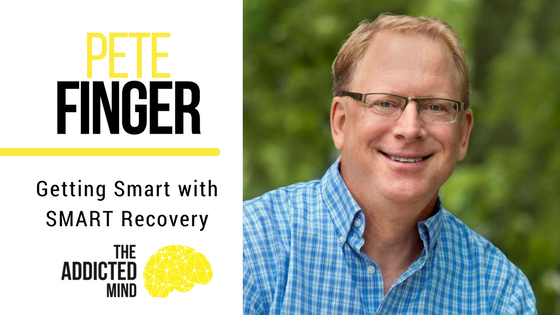Mr. Finger had struggled with alcohol addiction for 20-30 years. Growing up in what he describes as an “addictive family” where cocktail parties were a big part of their lives, he used alcohol to cope with the trauma of abuse by a teacher. His addiction continued to escalate through college and beyond. An intervention at work helped Pete get into recovery.
Pete’s history of trauma is not uncommon with people who struggle with addiction. To cope they find behaviors or substances to help them feel better and it slowly becomes unmanageable until we learn to stop beating yourself up and allow yourself to recover.
Pete was fortunate enough to find a Smart Recovery facility in San Diego called Practical Recovery. It’s founder, Dr. Tom Horvath, developed their program through evidence-based practices and the following four tenants:
- building and maintaining motivation
- coping with urges
- managing thoughts feelings and behaviors
- living a balanced life
These methods have worked well for Pete, and he has been sober for three years.
Thefix.com is the website where he read about Smart Recovery. He used Smart Recovery to find a positive place with individual attention. It was what he needed. Pete gives much of the credit to Smart Recovery.
Pete is trained as a Smart Recovery facilitator and has been working with their program for three years. Pete gives us an idea of what a typical Smart Recovery meeting looks like: There is an introduction and talk about what Smart Recovery is, and what it isn’t. Then they go around the room for “check-ins” which take almost 100% of the rest of the meeting time. Individuals take turns talking about their current struggles, how their week has been, relationships, and the raw emotions that come along with sobriety.
In these meetings, cross-talk is encouraged. Individuals are encouraged to share their experiences as they relate to others and their situations. Criticizing or shaming each other is not allowed. Suggestions of particular books or therapists may be given that may have worked for others. Then the meeting might have an educational component where we talk about Smart tools and a person may talk about how these tools have helped them in their life. Donations are then accepted, and the meeting comes to a close.
In this episode we also talked about:
– The Smart Recovery tools which you can find in detail at http://www.smartrecovery.org/resources/toolchest.htm

